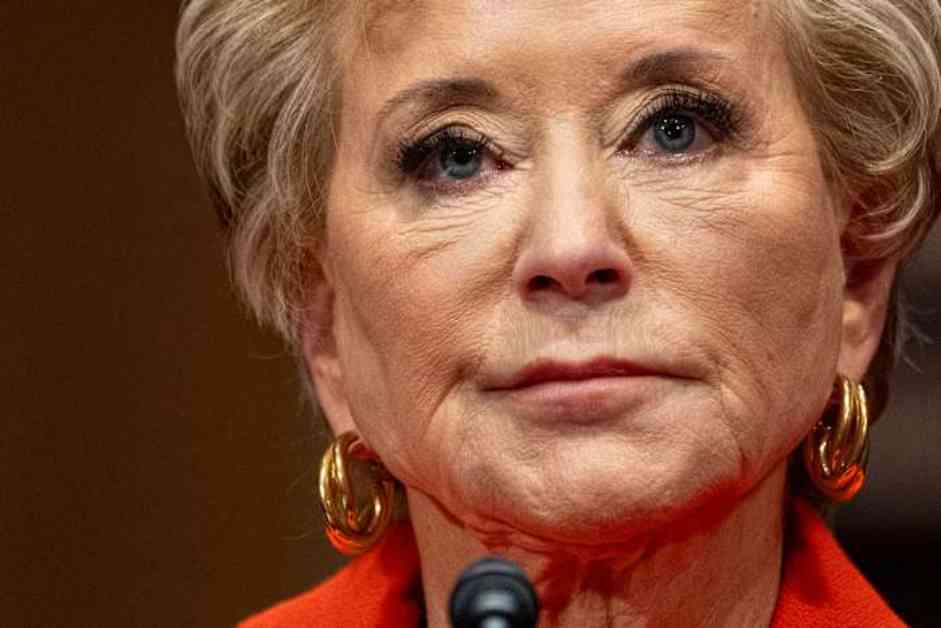In a significant move that could reshape the landscape of education in the United States, Linda McMahon, President Donald Trump’s nominee for Secretary of Education, presented a plan to overhaul the Education Department during her confirmation hearing on Thursday. McMahon highlighted the administration’s goal of streamlining the agency while maintaining vital programs such as Title I funding for low-income schools, Pell grants for underprivileged college students, and Public Service Loan Forgiveness.
During the Senate Health, Education, and Labor Committee hearing, McMahon emphasized the importance of reorienting the department to operate more efficiently while acknowledging that any substantial changes would require congressional approval. She expressed a desire to collaborate with lawmakers to create a more functional Department of Education that aligns with the administration’s vision.
However, McMahon’s proposal to potentially transfer certain programs to other agencies, such as placing oversight of the Individuals with Disabilities Education Act under the Department of Health and Human Services, sparked debate among senators. Democrats raised concerns about the potential implications of restructuring the department and questioned McMahon’s commitment to upholding congressional mandates.
The discussion also delved into contentious topics, including President Trump’s directives on diversity, equity, and inclusion initiatives in schools. McMahon faced scrutiny over the administration’s stance on issues like transgender athletes and campus antisemitism, with senators seeking clarification on how these policies would be enforced under her leadership.
While most Republican senators voiced support for McMahon’s nomination, some, like Sen. Lisa Murkowski, cautioned against overreach in implementing the administration’s agenda. Murkowski emphasized the importance of respecting federal legislation that protects schools’ autonomy in curriculum decisions, highlighting potential conflicts that could arise if the department seeks to impose restrictions on educational content.
Despite assurances from McMahon that popular programs would be safeguarded, critics raised concerns about the potential impact of the proposed changes on public education. Organizations like the National Education Association and advocacy groups advocating for stronger Title IX protections expressed reservations about McMahon’s nomination, citing her limited education background and ties to the Trump administration.
As the debate over the future of the Education Department continues, McMahon’s confirmation hearing shed light on the administration’s intentions to restructure the agency. With opposing viewpoints clashing over the implications of these proposed changes, the fate of education policy in the United States hangs in the balance.
In a post-hearing news conference, Sen. Chris Murphy criticized McMahon’s nomination as part of a broader strategy to defund and privatize public schools, highlighting the need for investment in the public education system. As stakeholders on all sides weigh in on McMahon’s qualifications and the potential impact of her leadership, the future of education in America remains uncertain.
As the nation awaits further developments in this ongoing saga, the implications of McMahon’s nomination and the proposed dismantling of the Education Department are sure to reverberate across the education landscape for years to come.















